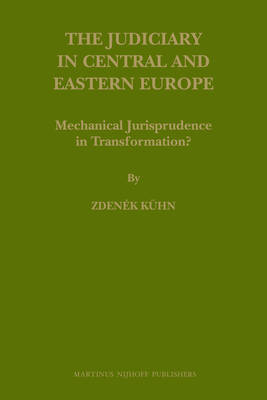
- Afhalen na 1 uur in een winkel met voorraad
- Gratis thuislevering in België vanaf € 30
- Ruim aanbod met 7 miljoen producten
- Afhalen na 1 uur in een winkel met voorraad
- Gratis thuislevering in België vanaf € 30
- Ruim aanbod met 7 miljoen producten
Zoeken
€ 291,95
+ 583 punten
Omschrijving
One of the most widespread problems in post-Communist countries is the quality of the judiciary. The book argues that these problems are intimately linked to the legal culture of Communist law, that an understanding of post-Communist judges necessarily requires an understanding of their Communist predecessors. There seems to be a deep continuity in the methods of legal reasoning employed by lawyers in the region of East Central Europe, starting in the era of Stalinism of the 1950s up to the current post-Communist period, which continuity is manifested in the problems of 1990s and 2000s. Communist legal culture and its aftermath provide an interesting analysis of the development of legal culture in a long-lasting system which was intellectually almost completely separated from the outside world. The book targets the judicial ideology, the conception of law, and the judicial self-perceptions, which are phenomena most likely to be contained in the deepest level of legal culture, that most resistant to change.
Specificaties
Betrokkenen
- Auteur(s):
- Uitgeverij:
Inhoud
- Aantal bladzijden:
- 336
- Taal:
- Engels
- Reeks:
- Reeksnummer:
- nr. 61
Eigenschappen
- Productcode (EAN):
- 9789004175563
- Verschijningsdatum:
- 28/10/2011
- Uitvoering:
- Hardcover
- Formaat:
- Genaaid
- Afmetingen:
- 163 mm x 244 mm
- Gewicht:
- 725 g

Alleen bij Standaard Boekhandel
+ 583 punten op je klantenkaart van Standaard Boekhandel
Beoordelingen
We publiceren alleen reviews die voldoen aan de voorwaarden voor reviews. Bekijk onze voorwaarden voor reviews.








